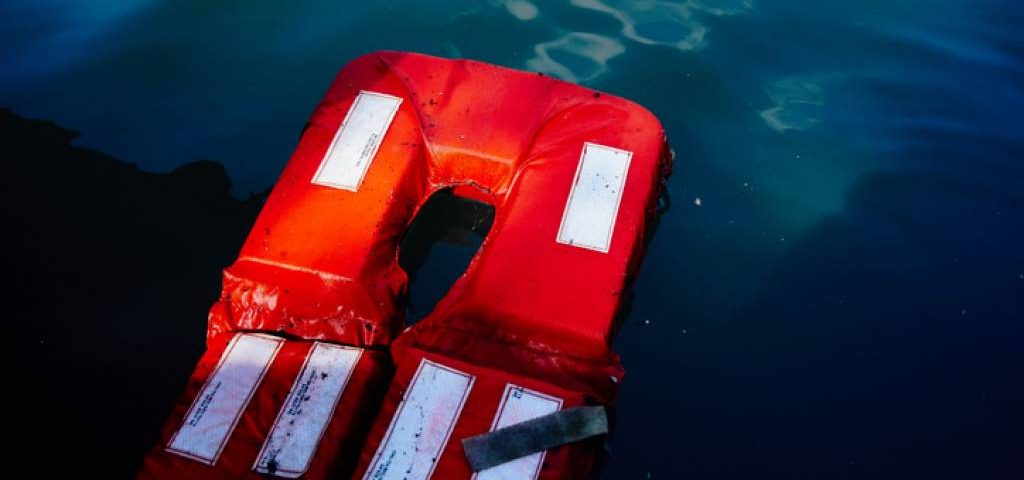- Mediterranean Hope - Federazione delle chiese evangeliche in Italia
- mh@fcei.it
Deaths at sea and humanitarian ships at anchor
Whilst they keep discussing in the chambers of power and incomprehensible restrictions are placed on se rescue, thousands of people who could be rescued are instead dying. Unacceptable.
He was called Youssef and he was six years old. He was the umpteenth victim of irregular migration managed by unscrupulous people-smugglers who transport men, women and children on dilapidated and unfit boats with the aim of getting as far as possible from the Libyan coast. Afterwards, on the open sea, what had to happen happened. In this case, the boat was rescued by the only NGO currently working in the Mediterran: the “Open Arms” on which, in the past, various volunteers from Mediterranean Hope (MH), refugee and migrant programme of the Federation of Protestant Churches in Italy (FCEI) have crewed. However, on the morning of 11th November, when the rescue ship reached the shipwreck zone, a tragedy had already taken place. In addition to the 100 rescued, the crew had to bring in five corpses, including that of a young Bengali mother, to whose six year old child the father – a survivor – had to explain that “mummy had ended up in the water”. Youssef, on the other hand, was still alive but clearly undergoing a respiratory crisis and, after some hours, died. His body was buried on Lampedusa in the cemetry which will one day become a true and proper memorial to those who have died at sea.
The umpteenth coffin buried on the island on 14th November cries out Italy and to Europe. Right now, the Open Arms is the only NGO ship able to operate whilst all others, thanks to confusing and even contradictory administrative prohibitions are forced to remain at anchor in various ports. Amongst these, Sea Watch IV, the humanitarian ship sponsored by the German Protestant churches which, so far, has been able to carry out a single mission, saving more than 350 people. Worthy of merit, if it can be believed, and yet, at the mission’s conclusion, the ship was impounded for technical reasons to which it is difficult not to attribute political motivation. The repeated objections of the EKD, the German Protestant church which can count a membership of more than 21,000,000, have been of no use. Nor has the issue been resolved by a meeting which its president, Bishop Heinrich Bedford-Strohm, managed to have wiith Minister for Transport Paola De Micheli – under whose supervision the Coastguard operates.
On the one hand you have the ethical reasoning of a pastor at the head of a large European Protestant church for which sea rescue is a duty dictated by a Christian conscience, a sort of Gospel imperative which shouldn’t be shirked; on the other you have the technical arguments of a minister of the Republic aligning herself with the Coastguard making quite clear that Sea Watch IV, like so many other NGO ships, is not “certified” for sea rescue. Positions which remain far apart and will, predictably, clash before a court. Thus far, as is well known, no criminal judgment has actually stopped the NGOs, which have always been acquitted of any accusations levelled, chief amongst which that of collusion with people-smugglers and facilitation of clandestine immigration. But that which the courts have not been able to do is being done by means of difficult-to-challenge administrative provisions.
Whilst they keep discussing in the chambers of power, what is left to us is the picture of seventeen year old mother crying to her Youssef, to whom she hopes she can offer a destiny better than her own in which, fleeing Guinea, she found herself in the hell of the Libyan prison camps. Mediterranean Hope staff, activists from the Forum Lampedusa Solidale, the island’s parish priest, Don Carmelo La Magra, all hugged her and supported her at the most terrible moment of her life; another MH team member, Francesco Piobbichi, drew the picture to be affixed to the tomb hollowed out in the island’s little cemetery. It is the lightest feather, detaching itself from a dark sea whose waves have taken the shape of barbed wire. From 1st January this year, “deaths from immigration” have numbers almost 600; more than 20.000 victims since 2013. Notwithstanding the agreements which Italy has with Libya and Tunisia, there have been more than 30,000 disembarkations during the course of 2020. Itself proof that the humanitarian work of NGOs – almost entirely halted during that period – is not a pull factor as regards irregular migration, which continues because it is triggered by social and political collapse over a vast area of North and sub-Saharan Africa. Stopping NGOs is the useless revenge of the worst kind of xenophobic politics. The real dilemma for Italy and Europe is whether to respect international law and support those who save lives at sea or pander to the populist sentiment which seeks closed ports and impossible walls across the Mediterranean.





